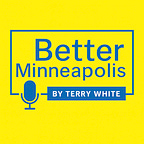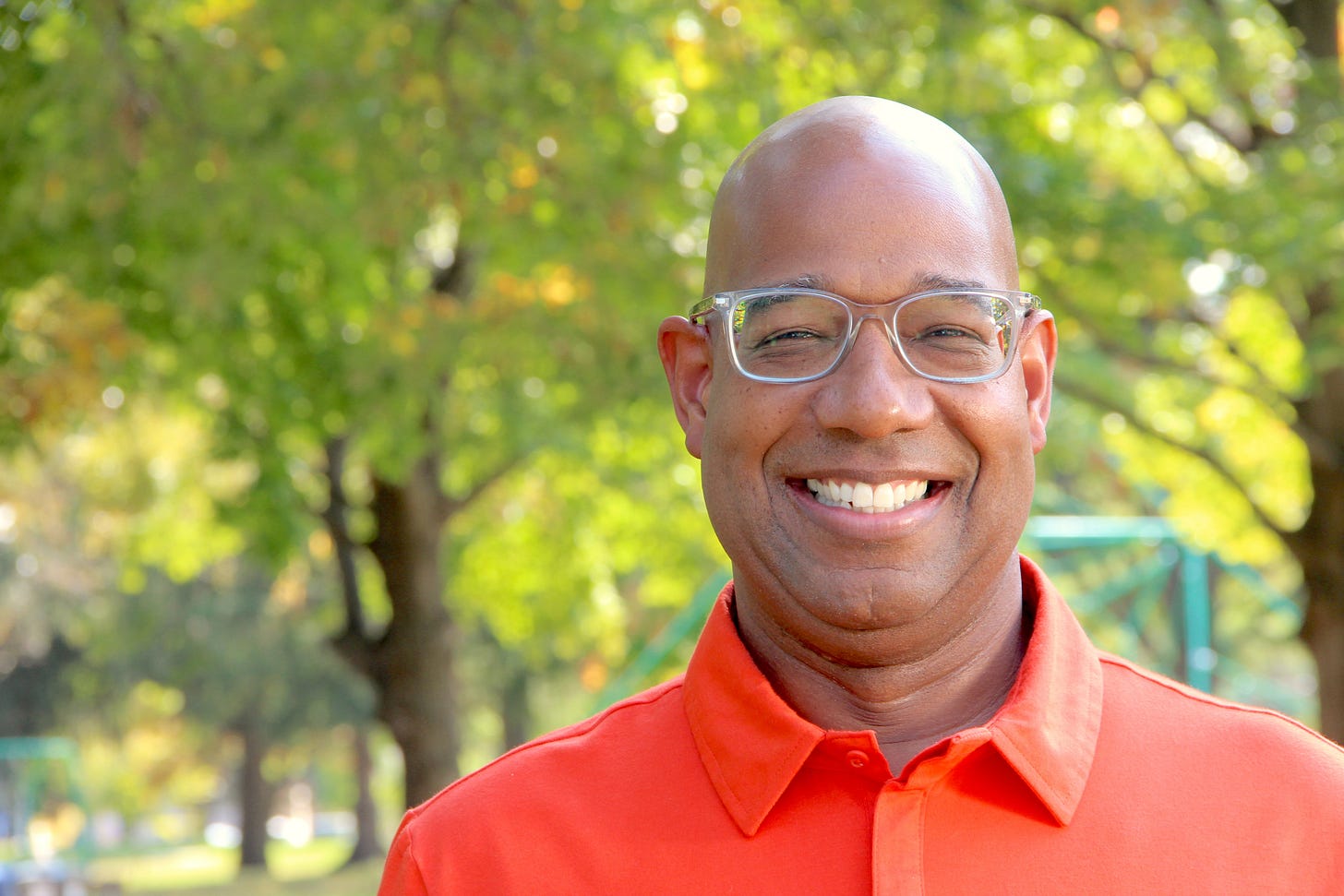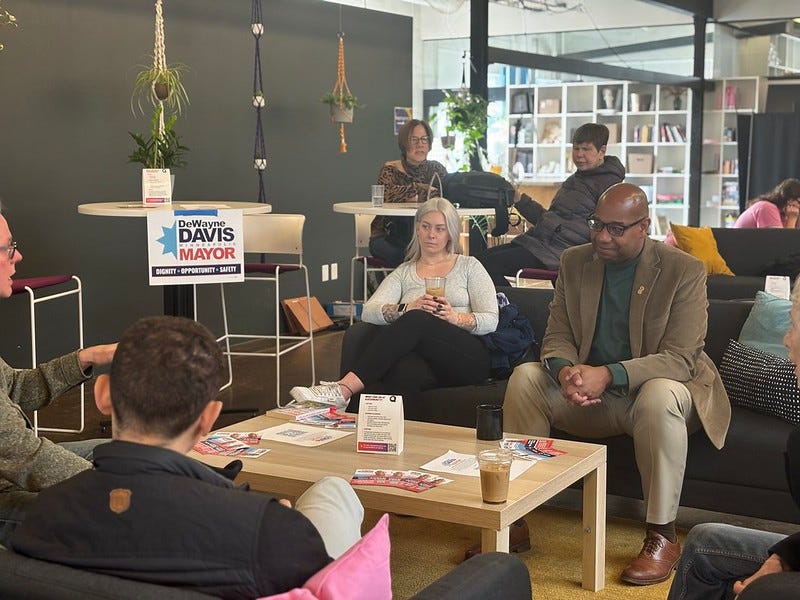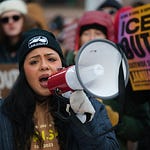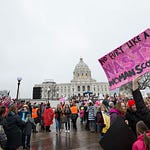My first face-to-face interaction with Dr. DeWayne Davis was this spring at the Queermunity Social Enterprise Café and Gathering Space. Several people encouraged me to hear him speak, and when I saw he was hosting a Meet & Greet, I went. His background as a minister was immediately clear. He speaks with confidence and ease, especially to strangers.
Much of that day's discussion centered on Uptown, a topic we return to at the end of the podcast. One suggestion that stood out was his question about construction: Why doesn’t the city do more to stagger projects to minimize disruption? It’s a reasonable idea, and one worth exploring.
Davis recently returned to the campaign trail after a two-week pause following his mother's death. In our conversation, he reflected on how she and his broader family’s tradition of civic involvement influenced his decision to run for mayor.
His engagement with Minneapolis politics predates this campaign. As Lead Minister at Plymouth Congregational Church, he stepped into a liaison role after the 2015 shooting of Jamar Clark by two police officers. Both officers were cleared of wrongdoing, and then–Police Chief Janeé Harteau issued no discipline. The city was tense. Protesters camped outside the 4th Precinct for 18 consecutive days, and the ripple effects of that moment are still felt.
On July 19–20, delegates at the DFL City Convention will choose among several candidates for mayor. Davis has since left his role as minister at Plymouth Congregational and plans to campaign full-time. Regardless of the convention’s outcome, he’s expected to stay in the race through November.
If this interview—and our broader coverage—adds value to your understanding of Minneapolis, we invite you to become a paid subscriber. Your support makes this work possible. Paid subscribers gain access to the newsletter archive, exclusive chats, and Happy Hours, but more importantly, you help sustain an independent, reader-supported voice committed to reporting on the future of our city.
Look for my interview with Mayor Jacob Frey on Sunday, and with Department of Neighborhood Safety Director Amanda Harrington next Wednesday.
Dr. DeWayne Davis Interview Summary
In this interview, Dr. DeWayne Davis shares his background as the youngest of 15 children raised in the Mississippi Delta by a minister and a Head Start teacher. He traces his path from Howard University and a career in Washington, D.C. politics to becoming a minister in Minneapolis. Davis says he was drawn into community leadership after the deaths of Jamar Clark and George Floyd, engaging with mayors and residents in efforts to heal and organize. He criticizes Mayor Frey as out of his depth and sees the city as stuck, arguing that this moment calls for moral clarity and renewed energy.
Davis centers his campaign on values like dignity, cooperation, and collaborative governance. His top priorities include addressing the affordable housing crisis, expanding economic development beyond downtown, and ensuring public safety through accountable alternatives to policing. He wants to see stronger city leadership on encampments, proposing investments in social services and provider networks to "depopulate" rather than sweep them. He also supports expanding behavioral crisis response and holding city leadership accountable to the terms of the police settlement agreement.
Personally, Davis opens up about his love of libraries, community theater, and the arts—experiences that shaped his worldview growing up in a poor rural town with few resources. He emphasizes the importance of listening and being present with people in their struggles, a value shaped by ministry and reinforced by his family’s legacy of justice work. Ultimately, he believes Minneapolis can be a model of democratic resilience and progress, particularly in the face of rising national authoritarianism, but only if the city recommits to serious, collaborative, people-first governance.
Dr. DeWayne Davis proposes a comprehensive approach to revitalizing Uptown by addressing barriers faced by small businesses, improving city responsiveness, and fostering inclusive economic development. He emphasizes the need for a reorganized and effective small business office—potentially led by an ombudsman—to ensure entrepreneurs can navigate licensing and permitting efficiently. Davis also advocates for stronger collaboration with larger corporations to integrate local businesses into supply chains and for proactive anti-displacement planning during infrastructure projects. While open to business improvement districts, he cautions against favoring only certain types of businesses and urges the city to embrace imaginative, entrepreneurial ventures across diverse industries. Drawing lessons from the North Loop and emerging markets like cannabis, he calls for a more creative and adaptable vision for Uptown’s future.

